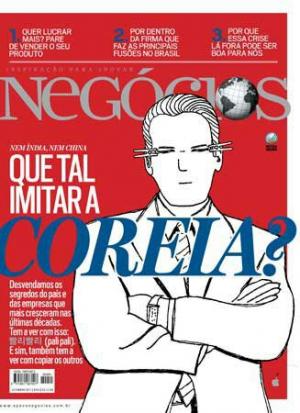
| 연구주제 | 브라질 사람들과 소통하기 | ||
| 개설자 | 임두빈 | 개설일 | 2011-01-13 |
| 소개글 | 브라질과 사람 읽기 | ||
| 작성자 : 임두빈 | 작성일 : 2020-12-30 13:39:58 | 조회수 : 1,865 |
| 언어 : 포르투갈어 | ||
|
Brazilians in general think that Dilma Rousseff was a bad President who seemed to be under influence when giving speeches. I voted for her in 2010 and had extremely high hopes for her government; for a moment in her first year, I thought she would finally change her Party and sweep away shady coalition members (I didn’t really understand politics then), but as 2011 went by, things got worse. Dilma Rousseff does not like politics. She is a natural bureaucrat and her style seemed to be autocratic in comparison to her predecessors Lula and FHC, who were real politicians. Dilma had never been elected before and still has very little political experience; she was only elected for two reasons: more people hated José Serra and Aécio Neves in 2010 and 2014, and she had the unconditional support of her “mentor”, Lula. She was elected because of her supposedly great “managerial” skills — Dilma had been Minister for Mines and Energy, and Chief of Staff under Lula — but she had never been the natural heir to Lula’s legacy; hadn’t it not been the Mensalão scandal, another very big and complicated corruption scandal, Lula’s successor would’ve been José Dirceu, another charismatic left-wing figure. After Dirceu was arrested, Lula and the Workers’ Party (PT) chose Dilma in a hurry: she was an unknown figure and they would have more than enough time to build her image. Many thought that Dilma was former President Lula’s wife , which was conveniently ignored by her Party’s propaganda machine. Dilma didn’t have a totally clean slate: her official CV falsely claimed that she had a Masters and a Ph.D. in Economics and she was known for demanding that people called her “Doctor”. Lula’s charm and PT’s finances, however, managed to make her the ideal candidate. Her government proved everyone wrong. 다른 의견
This question can be simply answered by stating that most Brazilians do find her unfit for presidency. Since more than 70% think her government is a bad one nowadays. But political things in Brazil are never simple, since it's a country with multiple powerful parties, very complicate (and convoluted) relationship between the Three Powers, considerably young modern democracy (military dictatorship ended in the 80's and is a major hub of interested in the current geopolitical struggles (which is a thing that most Brazilians, right or left, keep forgetting about). You
can say that support to her through socioeconomic spheres change
drastically, but saying poor and educated people support her, while rich
and educated don't is an oversimplification. Support dynamics to Dilma
is more similar to Obama than most Brazilians (conservative or liberal)
would care to admit. On
the other hand, the bulge of the South/Southwest population do believe
she's not only incompetent but also corrupt. Most of the middle and
upper classes would like to see her impeached tomorrow, even if that
meant Brazil facing a downgrade in its investment rating due to
political instability and a party that would assume the executive power
is way deeper into the corruption scandals that hers. So yeah, you can
say that there is a HUGE slice of the population that hates her to brink
of having a considerable number asking for military coup. ...not to mention that the richest population in country that is social inequal and not far off from its recent dictatorship tends to be the most educated AND the most conservative at once. So things are complicated... Support for her shifts in a layered onion fashion through Brazilian society. But the strangest thing about this dynamic is that most of the Brazilians that are against her use catchphrases and advocate on ideologies very similar to the anti-Obama movement in U.S., yet they identify themselves as democrats, sympathize with Obama and think of them selves as liberals (while they are only liberals I the economical sense, not the social one).
|
||
| 이전글 | What do Brazilians think of Pedro II? |
|---|---|
| 다음글 | How do Brazilians feel about President Bolsonaro's handling of COVID-19? |


